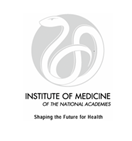
| Bill Sponsors | Endorsing Organizations |
As a patient, you need to know |
Medical Evidence | What the bill does | Get Involved |
| Why People in Massachusetts Support the Bill Fact Sheet on the Patient Safety Act The Problem: Understaffing of Registered Nurses is Dangerous
In November 2003, the Institute of Medicine published a report that found that nurses’ working environments are breeding grounds for medical errors and will continue to threaten patient safety until they are substantially transformed. One of the Institute’s recommendations to reduce medical errors is to raise RN staffing levels. The Solution: The Patient Safety Act The "Patient Safety Act" calls upon DPH to set a safe limit on the number of patients a nurse is assigned at one time. In addition, the bill calls for staffing levels to be adjusted based on patient needs. It also bans mandatory overtime, and includes initiatives to increase nursing faculty and nurse recruitment. Over 125 health care and community groups have endorsed the bill and joined the Coalition to Protect Massachusetts Patients. The Facts: Safe Staffing Saves Lives and Protects Patient Safety Studies by the most respected medical researchers affirm the significance of safe RN-to-patient limits to patient safety.
Research on Massachusetts Hospitals Shows Patients are Suffering Under Current Staffing Conditions in Hospitals It is not uncommon for nurses in Massachusetts hospitals to be assigned six, seven, eight or even 12 patients at a time. According to the research, these practices place patients at a dramatically increased risk of injury or death. A survey of past patients in Massachusetts’ hospitals found that one in four patients (an estimated 235,000 patients a year) reported their safety was compromised during their hospital stay due to their nurse having too many other patients to care for (Opinion Dynamics Corp., March 2005) A survey of Massachusetts physicians conducted in April 2005 by Opinion Dynamics Corp. found that:
Burned out with high patient loads, RNs are leaving the bedside or working less. Massachusetts has the fourth most RNs per capita in the country, but less than 50% are working at the bedside and nearly 60% of bedside nurses are working only part-time. Both nationally and in Massachusetts we have seen a consistent increase in the number of licensed RNs and a simultaneous decrease in the number of those RNs working in hospitals. The best way to retain skilled nurses in our hospitals is to establish minimum safe staffing standards. Enrollments in nursing schools continue to skyrocket -- many schools have long waiting lists. A survey of registered nurses in Massachusetts completed by Opinion Dynamics Corp. in July 2005 found that 65% of those nurses not working in hospitals would be likely to return to hospital nursing if the Patient Safety Act were passed. This represents a pool of more than 30,000 nurses!
Better Care Reduces Costs Safe minimum RN staffing levels eliminate unnecessary complications, reduce preventable medical errors, and curb extended hospital stays, thereby saving precious health care dollars.
Safe Staffing Decreases RN Turnover and Saves Money Unsafe staffing levels are burning out nurses and increasing turnover rates, costing hospitals millions to recruit and train new nurses. The cost of replacing just one medical/surgical RN is $46,000; the cost of replacing a critical care RN is more than $65,000. Hospitals with higher turnover rates have a 36% higher cost per discharge. Higher turnover leads to lower profitability. In other words, lower patient loads will keep nurses at the bedside and save money. What you can do!
For more information on the bill or to find out how you can help, call Political and Grassroots Organizer Riley Ohlson at 781.830.5740 |
|||
P.O. Box 309 |
 We
have a disturbing crisis in Massachusetts. Registered nurses are
being forced to care for too many patients at once, and patients
are suffering the consequences in the form of preventable errors,
avoidable complications, increased lengths of stay, and readmissions.
We
have a disturbing crisis in Massachusetts. Registered nurses are
being forced to care for too many patients at once, and patients
are suffering the consequences in the form of preventable errors,
avoidable complications, increased lengths of stay, and readmissions.
 The
more patients a nurse has to care for at once, the more likely
there will be patient deaths or complications after surgery. Each
additional patient per nurse over 4 is associated with a 7% increase
in mortality. The difference between 4 to 6 and 4 to 8 patients
per nurse correlates with 14% and 31% increases in mortality,
respectively. (Oct. 2002)
The
more patients a nurse has to care for at once, the more likely
there will be patient deaths or complications after surgery. Each
additional patient per nurse over 4 is associated with a 7% increase
in mortality. The difference between 4 to 6 and 4 to 8 patients
per nurse correlates with 14% and 31% increases in mortality,
respectively. (Oct. 2002) There
is a 'strong and consistent' link between nurse staffing
levels and patient outcomes. Improved RN-to-patient
staffing reduces rates of hospital-acquired
There
is a 'strong and consistent' link between nurse staffing
levels and patient outcomes. Improved RN-to-patient
staffing reduces rates of hospital-acquired 
 January/February
2006: An "unequivocal business case"
can be made for increasing the level of registered nurse staffing
in hospitals. This move could pay for itself in fewer patient deaths,
shorter hospital stays, and decreased rates of costly medical complications.
January/February
2006: An "unequivocal business case"
can be made for increasing the level of registered nurse staffing
in hospitals. This move could pay for itself in fewer patient deaths,
shorter hospital stays, and decreased rates of costly medical complications.
 August
2005: Minimum RN staffing levels are more cost-effective
than common hospital practices such as clot-busting medications
for heart attack and stroke, and cancer screenings.
August
2005: Minimum RN staffing levels are more cost-effective
than common hospital practices such as clot-busting medications
for heart attack and stroke, and cancer screenings.